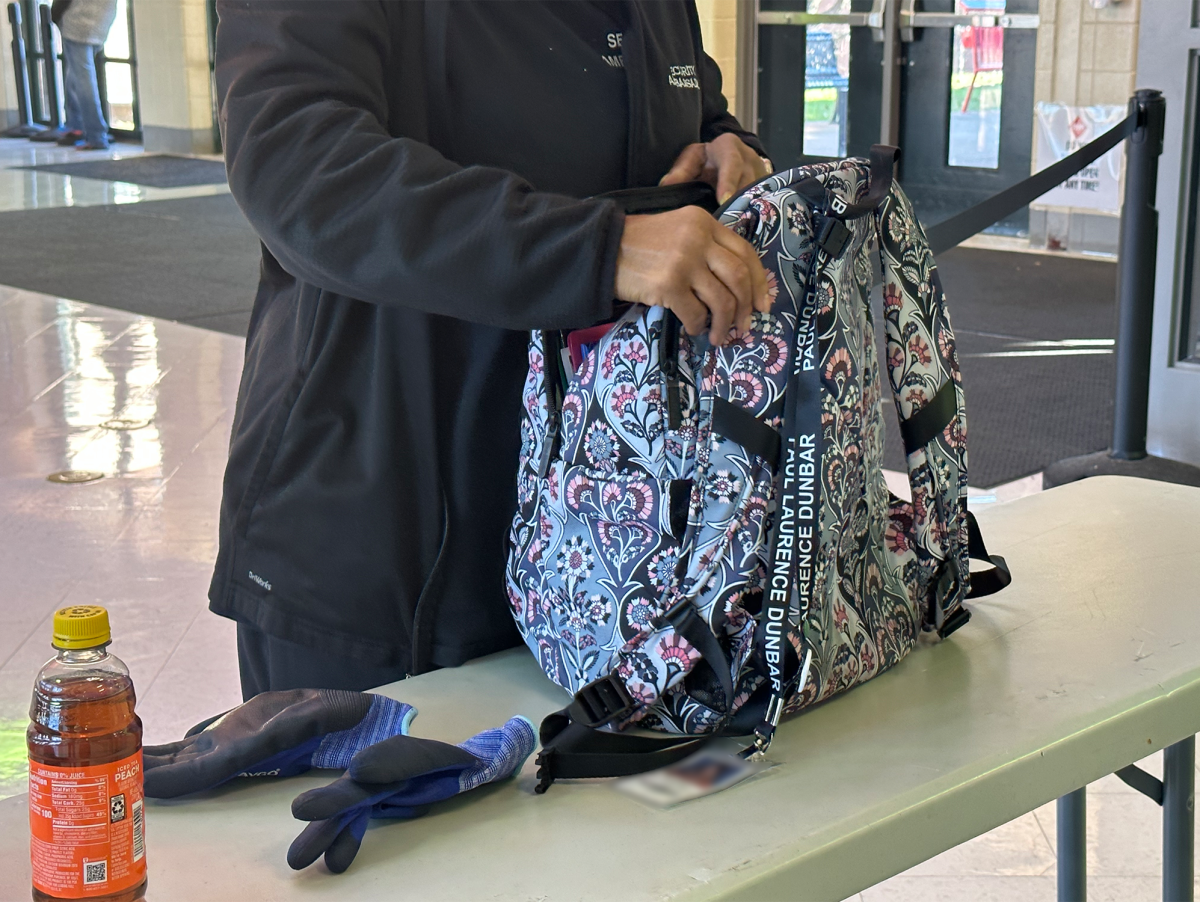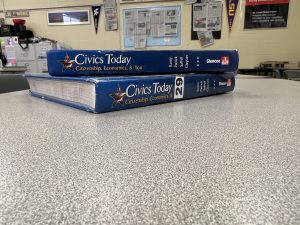Free Menstrual Products in Public Schools
On January 6, Senate Bill 55, a bill that requires schools to provide free feminine products, was introduced to the Kentucky Senate. The bill was sent to the Appropriations & Revenue committee on Feb. 14.
Senate Bill 55 requires each public school that includes grades 4-12 to provide free feminine hygiene products and it requires each local board of education to adopt policies for the distribution of the products.
The sponsor of the bill, Kentucky State Senator Denise Harper Angel (D), said the purpose is to ensure that all elementary and secondary students in the state have access to free, safe, and adequate feminine hygiene products.
“Supplying these products at school will help address the menstrual needs of students, reduce stigma, and promote menstrual health and hygiene,” she said. “It also helps address period poverty by allowing students to concentrate on their education without being distracted by a lack of access to menstrual products.”
The Kentucky Student Voice Team, a team of students who advocate for policies that advance educational equity and excellence, supports Bill 55 and agrees it would address period poverty.
“KSVT supports this bill, as providing feminine hygiene products for students helps to combat period poverty (the inability to purchase or have access to period supplies) in Kentucky, as well as helping to create a culture of normality and compassion around periods in schools.”
Senator Harper Angel studied similar programs in other states when creating the bill.
“In composing this legislation, I studied and analyzed the implementation and budget of similar programs in other states,” she said. “I also reviewed data and statistics on the prevalence of period poverty and the demand for menstrual products in schools. This helped me craft a comprehensive policy that addresses the needs of students and provides for sustainable and effective implementation.”
However, she anticipates the responses of her colleagues to vary.
“Those who support the bill recognize the need for access and the importance of addressing period poverty. Others may have concerns about the cost of the program. However, I am prepared to address those concerns by presenting data and evidence of similar programs in other states,” Sen. Angel said.
She said that providing free menstrual products in schools is also a critical step in educating girls on menstrual health and hygiene in general.
“Senate Bill 55 helps ensure that students are equipped with the knowledge and resources to manage their menstrual health with confidence and dignity,” Sen. Angel said.
Dunbar students were polled to see if they had adequate access to menstrual products at home: 89% of students responded that they had home access, but 11% said they did not.
The lack of period products in homes could be tied to price restrictions. Kentucky does not tax essential items like groceries but does tax-period products.
“Girls didn’t ask to have a period, so we shouldn’t be taxed for something we can’t control,” senior Addison Cremeans said. “Period products are just as essential as groceries. It’s something you can’t stop.”
Dunbar students were also asked if they had adequate access to menstrual products at school. 81% of students claimed they have access only when they bring their own products, and 10% of students claimed they had no access at all.
“I’ve never seen any products at school, so I bring my own,” senior Jordan Ingram said. “There’s not a well-known location to receive products.”
At Dunbar, period products are in the Youth Service Center led by Mr. Murray Garvin.
“Period products are requested often,” Mr. Garvin said. “The Youth Service Center funding currently pays for the supplies.”
However, 73% of students claimed in the poll felt that the school didn’t have a “safe place” to go if they needed menstrual products.
“Asking for products is uncomfortable for me,” senior Caroline Johns said. “I feel awkward asking.”
According to Dunbar English teacher Ms. Amanda Holt, several teachers in the English department keep products around for their students.
“I know many students find themselves in need of period products, and it’s not always predictable. So if it means that I help prevent a student from being distressed or embarrassed, I’m happy to keep products and provide them to students in need,” said Ms. Holt.
Nevertheless, she said that the expense and funding if the bill passes concern her.
“I would love to see the state require menstrual products for students. I would be worried about the expense and where that funding would come from in our already strapped-for-cash public schools, but if the funding came from the state and didn’t mean cutting other also-valuable student resources, I would love to see this happen,” she said.
In the poll, students were asked if they would use the products if they were provided by the school. 67% of students said yes and 28% said maybe.
“It depends on the quality,” Cremeans said. “If they’re going to have cheap stuff that doesn’t work well, I’ll bring my own.”
Aunt Flow, a menstrual product supplier for schools, could offer a solution for products if the bill passes and school districts are in need of suppliers.
Aunt Flow is a period dispenser and product supplier for schools. According to Austin Bevins, an Account Executive at Aunt Flow, last year the company donated 1.6 million products to schools through their clients.
Bevins said that schools are sold menstrual product dispensers for a discounted price, and cases of 500 pads or tampons are sold for $125 a case.
According to Bevins, most schools start with a pilot program when purchasing student dispensers.
“Sometimes schools start out with a pilot program (one or two dispensers), and they find out that’s all they need,” said Bevins. “Students will know which bathrooms have dispensers and will go to that location in the school.”
However, with doors already off the bathrooms in Dunbar due to vandalism, some have concerns about keeping free products in the bathrooms, but Bevins said that the items sold by his company are made to handle possible destructive behaviors.
If the bill passes, and menstrual products are available at every school, Ms. Holt said she believes it could help students who do not have access to pads or tampons at home.
“At the very least, I think schools should have machines where products are available for purchase–preferably cheap. Even if they can’t be provided for free, menstrual products should at the very least be available in some capacity.”
This story is developing.

Hi, I’m Allison! I’m a senior and this is my first year on the PLD Lamplighter staff. I have always loved writing since I was in elementary school....

























